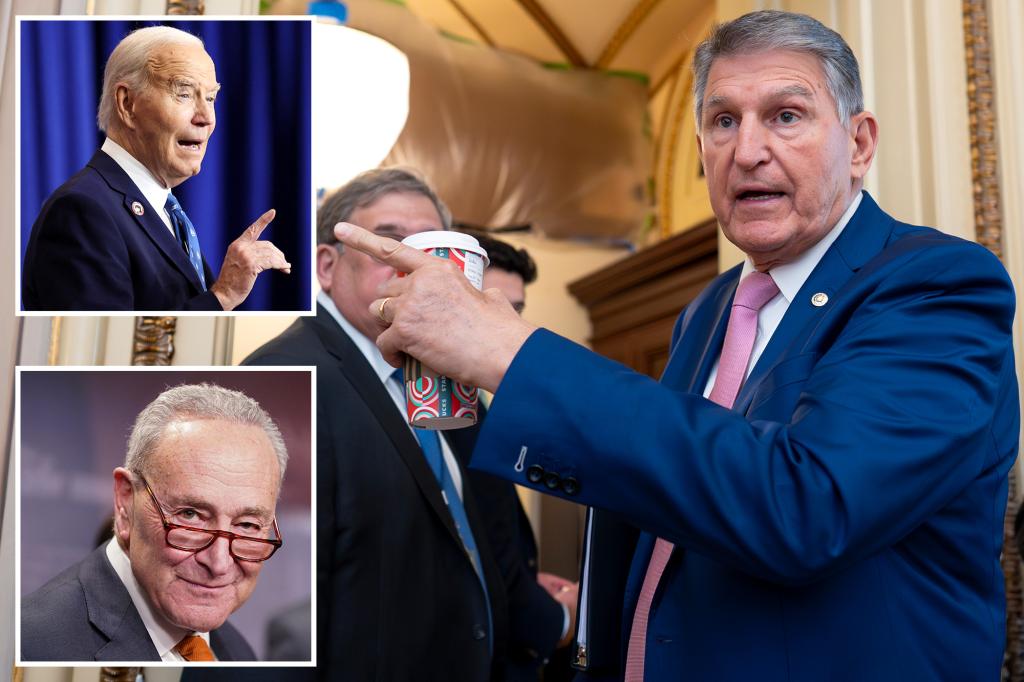Former Democratic Senator Joe Manchin, now an Independent, has offered a scathing critique of his former party, labeling its brand as “toxic” and accusing it of embracing extreme positions that have alienated a significant portion of the electorate. Manchin, who retired from the Senate earlier this year, argues that the Democratic Party’s leftward shift has rendered it out of touch with mainstream America, a sentiment reflected in his decision to leave the party and become an Independent. He believes the party has prioritized ideological purity over pragmatic solutions, resulting in a disconnect with the needs and concerns of everyday Americans. His departure serves as a symbolic representation of the growing divide between the progressive wing and more moderate elements within the Democratic Party.
Manchin’s criticism stems from his experiences during the first two years of President Biden’s administration, where he frequently clashed with progressive Democrats over legislative priorities. His pivotal role in shaping key legislation, notably the Inflation Reduction Act, a significantly scaled-down version of Biden’s initial “Build Back Better” agenda, earned him the ire of progressives while simultaneously highlighting his influence as a moderate voice within the Senate. Manchin’s willingness to buck party lines often frustrated his colleagues but also underscored the importance of his vote in a closely divided Senate, ultimately contributing to the passage of legislation that may not have otherwise seen the light of day. His actions demonstrate the ongoing tension between ideological purity and the practical realities of governing in a divided political landscape.
Manchin’s decision to retire from the Senate in 2024 further emphasizes his disillusionment with the Democratic Party. Facing a challenging re-election campaign in a predominantly Republican state, Manchin chose to step aside rather than continue to navigate the increasingly polarized political climate. His departure underscores the challenges faced by moderate Democrats in a political environment increasingly defined by partisan extremes. It also highlights the shifting political landscape in states like West Virginia, which have moved significantly towards the Republican Party in recent years, making it increasingly difficult for Democrats, particularly those with moderate stances, to compete effectively.
Central to Manchin’s critique is the accusation that the Democratic Party has become excessively paternalistic, attempting to dictate how people should live their lives. He argues that this approach has alienated voters who value personal autonomy and resent government overreach. This critique resonates with a broader national debate about the role of government in individual lives, and highlights the tension between individual liberty and collective responsibility. Manchin’s perspective reflects a concern shared by many Americans across the political spectrum who feel that government intervention has become excessive and intrusive.
Manchin’s disillusionment with both major parties extends beyond the Democrats. He also criticizes Republicans for their laissez-faire approach to governance, suggesting they prioritize deregulation and unfettered markets over the needs of working people. He advocates for a more centrist, common-sense approach to policymaking, one that balances individual freedom with responsible governance. This perspective reflects a growing sentiment among voters who feel disenfranchised by the partisan bickering and ideological rigidity of both major parties. Manchin’s call for a more moderate, pragmatic approach to governing resonates with those who believe that current political discourse has become too extreme and unproductive.
Looking ahead, Manchin believes a viable third party is essential to break the current partisan gridlock and give voice to centrist voters. He laments the tendency of both Republicans and Democrats to retreat to their respective ideological corners once elected, neglecting the pragmatic needs of the country. Manchin’s call for a centrist political force reflects a growing desire among Americans for a political alternative that prioritizes practical solutions over ideological purity. While the viability of such a party remains to be seen, Manchin’s advocacy highlights the growing dissatisfaction with the current two-party system and the desire for a more representative political landscape. His departure from the Senate, coupled with his sharp critique of both major parties, signals a potential shift in the American political landscape, where centrist voices may seek to carve out a more influential role.


